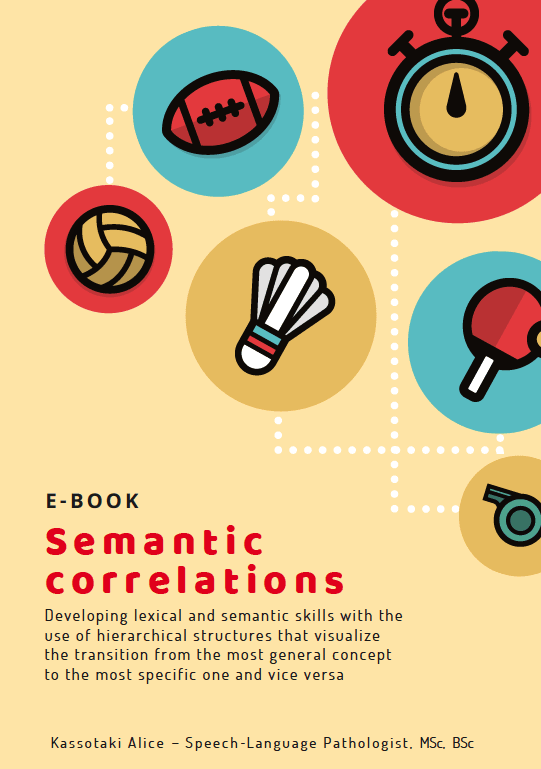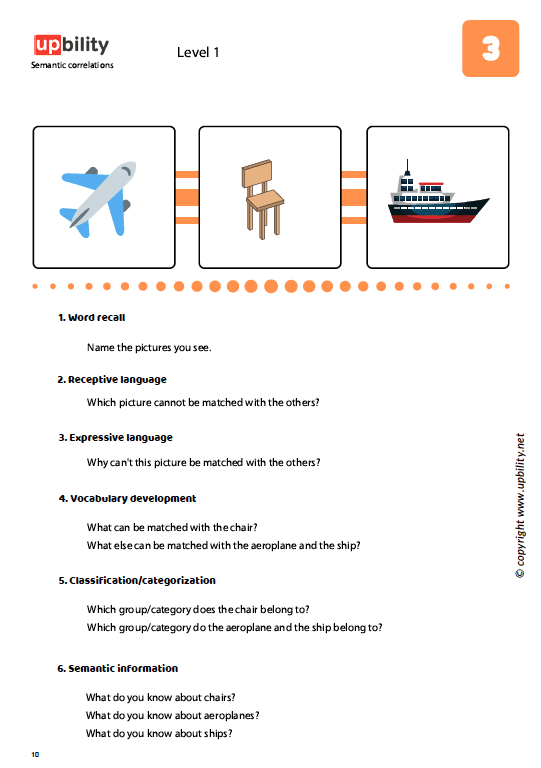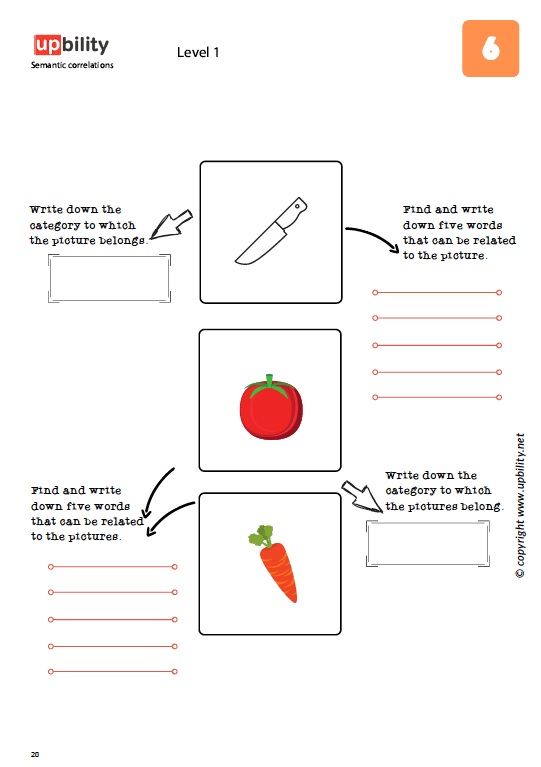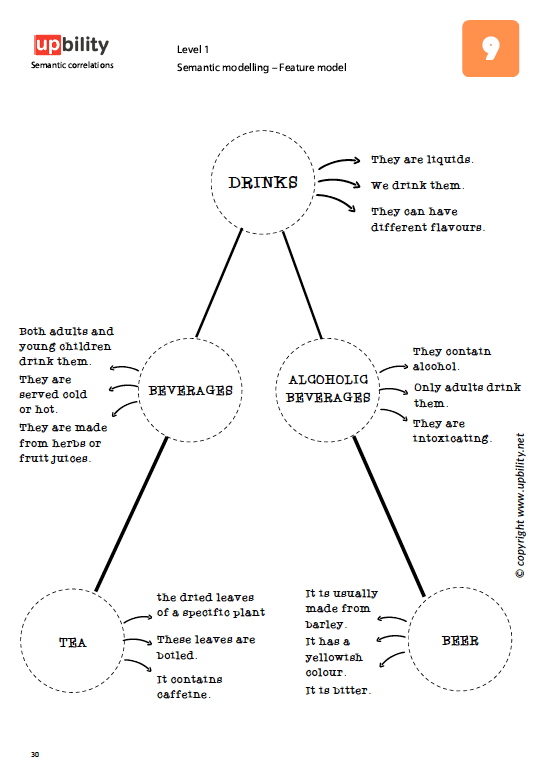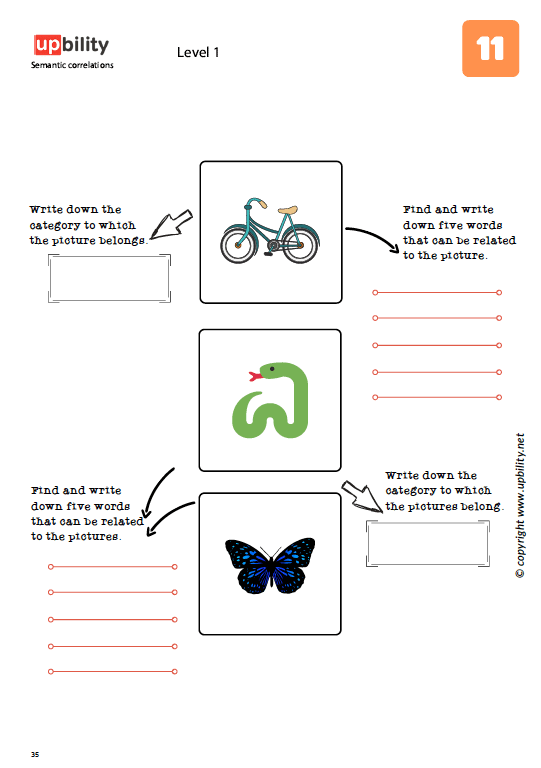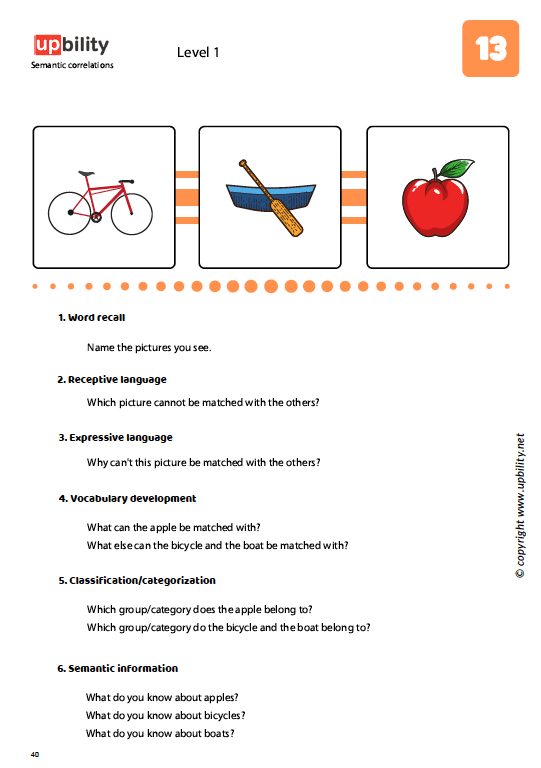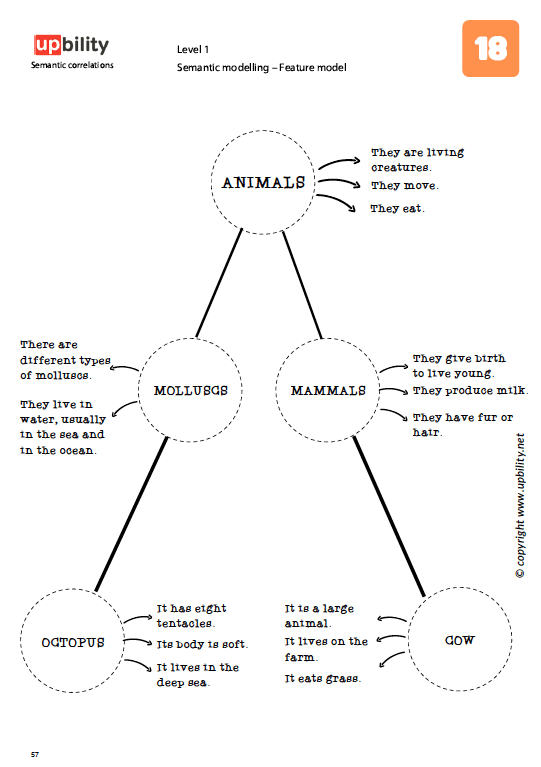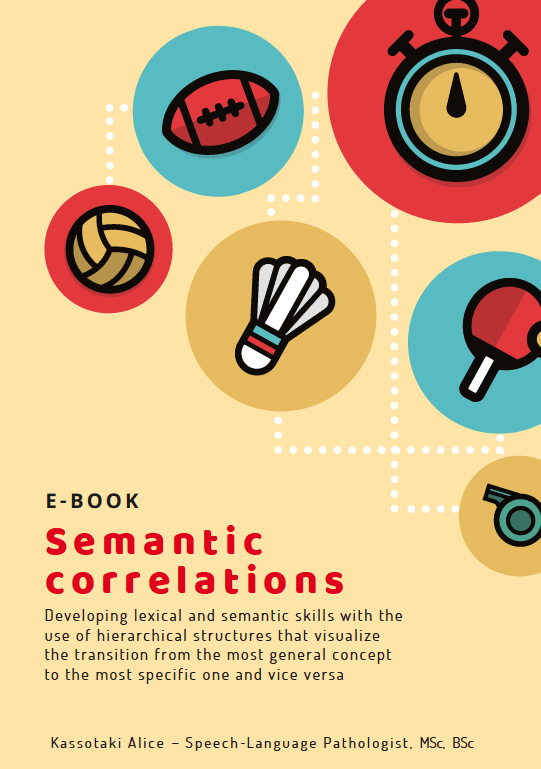Semantic correlations
Available
Semantic correlations - is backordered and will ship as soon as it is back in stock.
Description
Description
Semantic correlations
Age Group: 5+
The activities of this book are structured in two levels of difficulty.
In the first level, learners are given three words, one of which does not belong to the general category that is studied, and are asked to examine the concepts corresponding to these words. It is thus easier for children to group and classify these words according to the common semantic property that they share.
In the second level, learners are also given three words all of which belong now to the same general category that is studied. It is thus more difficult for children to identify the similarities of these concepts before grouping and classifying the words.
The activities of this book offer children the opportunity to develop the following skills:
- Word recall – Children must recognize and name the picture they see (particular field).
- Receptive language – Children must find matching pictures, assessing which of them have common features.
- Expressive language – Children must justify their answers, deploying their arguments verbally.
- Vocabulary development – Children must find and recall the words that belong to the same semantic group as the one they already know (interaction between current information and prior knowledge).
- Classification/categorization – Children must classify a word into the general group to which it belongs (general field).
- Semantic information – Children must describe what they have already gained about these words.
You may also be interested in the book "PICTURE CARDS | CATEGORISING GAME TIME to Spark Critical Thinking".
Specifications
Specifications
-
Book format
-
SKU
-
Age
-
Number of pages
-
Dimensions
-
Author
-
Pagination
-
Translation & Proofreading
-
Year of publication
Contents
Contents
Author
Author
Age
Preschoolers
Author
Alice Kassotaki - Speech Language Pathologist MSc, BSc
Secure Payments
All major methods accepted — fully protected from checkout to delivery.

